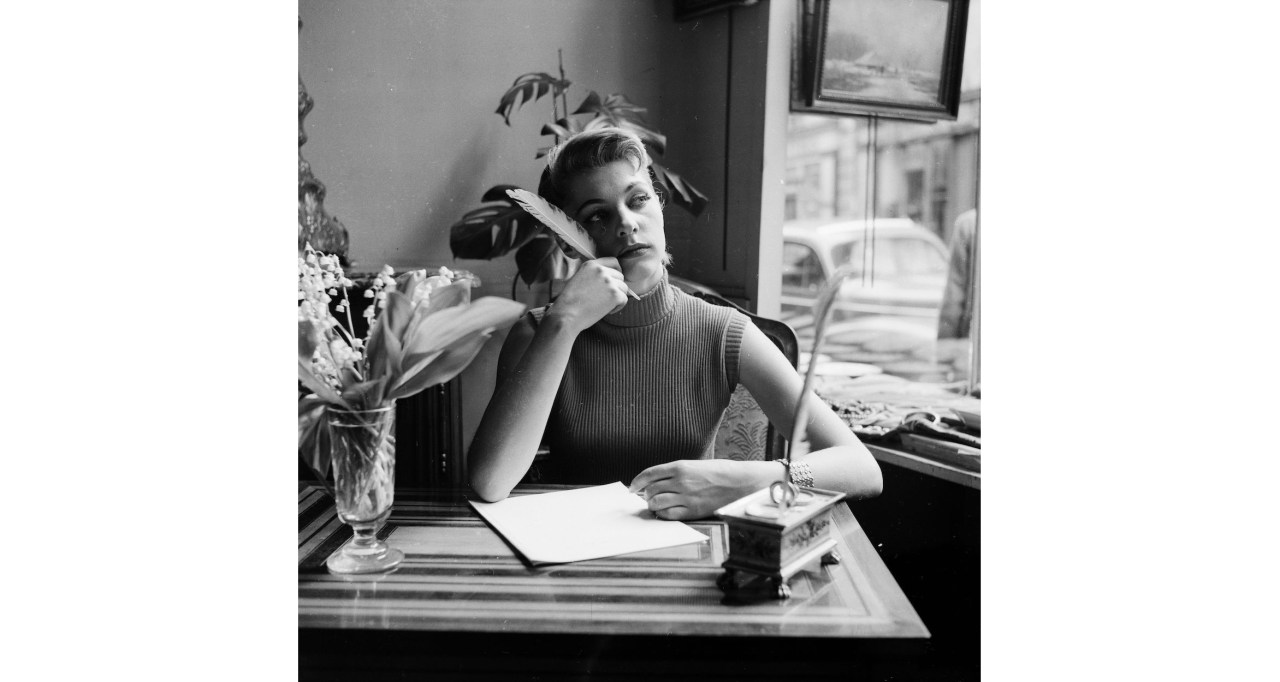Sometimes, it’s not just bombs, viruses and elections that make you worry about the future of humanity. A recent survey, commissioned by the National Literacy Trust, reveals that fewer than one third of eight-to-18-year-olds enjoys writing as a hobby. If you’re thinking that I’m being wistful about fountain pens (‘whatever happened to ink blots?’) you’re flat wrong: this also includes writing with computers. A mere ten years ago, 50 per cent of children delighted in writing. You can’t help but feel that since then something’s gone terribly awry. If the young’uns are not writing for their own amusement, then they are missing out on a fundamental tenet of humanity.
Recently, I unearthed a diary I’d kept, at the age of seven, in a reporter’s notebook
Writing – the making of decipherable, coherent marks, which can be understood by other people when you are not there – is what distinguishes us from animals. Dolphins demonstrate rudimentary syntax (‘Fish! Mine!’), but we can memorialise that desire for a fish in a diary entry, amuse others with an anecdote about it in a letter, turn it into a poem about the transience of pleasure, or into a multi-generational novel about warring families and the social effects of the decline of the fishing industry. Which, currently, dolphins can’t do.
We humans can speak outside time’s constraints. Sound recordings can be lost, technology superseded, but we will always be able to understand writing. (OK, no one can understand Linear A yet, but you get the picture.) This has always seemed magical. From the strange marks in a letter intended to send the hero Bellerophon to his death in The Iliad, through to modern curses inked on Ukrainian shells today, those simple signs emanate power beyond their mere form. Writing is, too, a paradoxical act, both intensely private, and yet potentially hugely public. There is Cassandra, the heroine of I Capture the Castle, scribbling in her secret diary as she sits in the sink; there is Winston Smith in 1984, terrified that his writings will damn him. Will such jottings soon be rare, even suspicious?
Children today are constantly asked to think about their feelings, but they cannot be expected to move beyond emotional statements (sad face!) if they’re unable to consider them carefully, in their own time, experimenting outside the classroom. The act of composition requires an intensity of concentration which enables discovery, about yourself, your voice, your ideas and the world. It necessitates layers of thinking: tonal, organisational, structural. And that’s just the functional side. What about the artistic? Forming sentences, letting them flow, trying out different styles, and making an ethical, even moral decision about the words you choose and why you choose them. All of this is important, and if it dies, then we die too.
Recently, I unearthed a diary I’d kept, at the age of seven, in a reporter’s notebook. In careful, rote-learned cursive, I detailed the events of a week: playing spaceships with my brother, hanging on the climbing frame. Though inherently worthless, it’s simultaneously priceless. I love the idea that it will rest in my attic until future generations stumble on it, and discover that the childhood experiences of scraped knees and throwing stones into the sea are universal. More importantly, that notebook cannot be altered, unlike a website, and unlike a tweet or a series of emojis, its context will always be comprehensible.
What can be done? In schools, encouraging pen and paper for creative- and essay-writing would be a start, so that there is no barrier between mind and action, the hand flowing freely, guided solely by thought. I’d like to see a country-wide campaign, like Mass Observation, which proved so useful to historians. Then politicians and celebrities ought to acknowledge the importance of reading and writing, of books and libraries, and their continued relevance and relative permanence in a transient digital age.
It won’t be long before someone, bedazzled by tech, suggests that teaching writing is pointless, since it can all be done by ChatGPT or whatever monstrous progeny it spawns. To me, there is something insane about outsourcing your critical faculties to the equivalent of an enormous I Ching. Will progress leave us smack bang where we started, gaping in astonishment at signs we don’t understand, impotent at wizardry beyond our ken? I sincerely hope not.
So to the keyboard, fellow citizens: teach your children to keep diaries and write letters (even emails, I beg you) to each other. Don’t form a book club, form a writing club. It doesn’t matter what you write. Just write. It’s never been a more important, or a more revolutionary act.








Comments